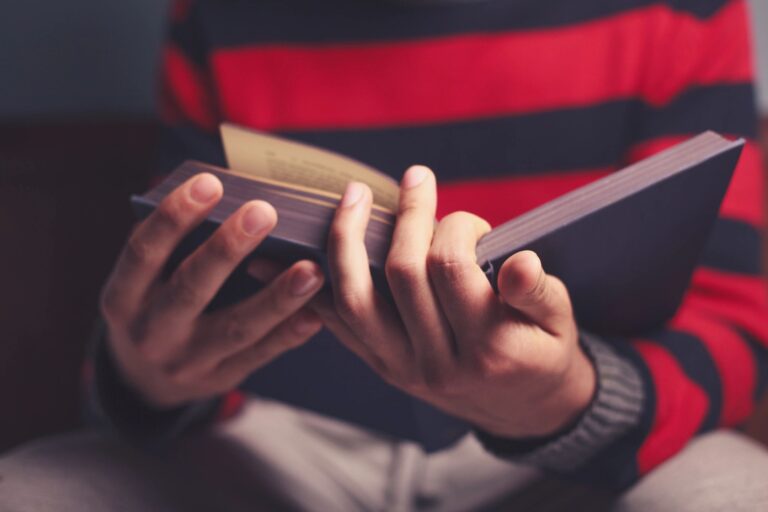The Gospel and the Night of Power
“Lo! We revealed it on the Night of Power. Ah, what will convey unto thee what the Night of Power is! The Night of Power is better than a thousand months. The angels and the Spirit descend therein, by the permission of their Lord, with all decrees. (That night is) Peace until the rising of the dawn.” (Qur’an, Sura al-Qadr: 97)
Islam teaches that the entire Qur’an, the Word of Allah, was “lowered” or “sent down” to earth from the highest level of heaven to be revealed to Muhammad piece by piece. The night that commemorates this “lowering” is called Laylat al-Qadr (Kadir Gecesi in Turkish), or “The Night of Power,” and it is observed during the last ten days of Ramadan, the month-long fast in Islam. The concept of the Night of Power offers significant theological bridges for sharing the gospel with Muslims and since many Muslims are particularly focused on their spiritual lives during this time, they may be especially receptive to hear our perspective on our relationship with God.
Ramadan and the Qur’an
The Qur’an makes an important connection between fasting during Ramadan and the revelation of the Word of Allah: “In the month of Ramadan the Koran was revealed, a book of guidance for mankind with proofs of guidance distinguishing right from wrong. Therefore whoever of you is present in that month let him fast…” (Qur’an, Sura al-Baqara: 2.185)
According to tradition, Muhammad had been fasting and praying in a cave during the month of Ramadan (a month on the Arabic lunar calendar) when an angel appeared to him and commanded him to recite the things that Allah revealed to him. While it seems that Muhammad was already in the habit of fasting during Ramadan, it is the beginning of the revelation of the Qur’an during this month which established fasting as a Muslim requirement. Muslims believe that the Qur’an is eternal and uncreated; as the very speech of Allah it has always existed in heaven exactly as we have it in the Arabic text today. Allah sent the entire text down to earth via the angel Gabriel on the night that the first verses were revealed to Muhammad, and over the next 23 years the rest of the verses were given to Muhammad as the proper circumstances presented themselves in the life of the prophet. The Qur’an itself is considered the greatest miracle of Islam and there are many miracle stories associated with the process of its revelation and preservation as well.
Fasting during Ramadan has become one of the five “Pillars” of Islam, a basic requirement of all Muslims who are able to fulfill it. From sunrise to sunset during this month-long ritual, Muslims abstain completely from eating, drinking, smoking, and sexual relations. As the call to prayer sounds from the mosque every evening the fast is broken and families usually share a meal together. Mosques are particularly well attended during this month, especially on Friday evenings when a special sermon is delivered. Many Muslims who don’t fulfill their religious obligations during the rest of the year still find themselves fasting and participating in prayer and other rituals during this time.
The Mystery of the Night of Power
The Hadith explains that the exact night on which the revelation began, and therefore the exact date of the Night of Power is a mystery. Muhammad is reported as saying that he once knew the exact date but that Allah “caused him to forget it.” (Sahih Bukhari 32.233)
Several other Hadith accounts seem to contradict themselves with regard to the exact date. In one tradition Muhammad explains that it is on one of the last ten nights of Ramadan (Sahih Bukhari
32.237); in other tradition he says that it is to be found “in one of the odd nights of the last ten days of Ramadan” (Sahih Bukhari 32.234); another account narrows the date down to either the 21st , 23rd, or 25th night of Ramadan (Sahih Bukhari 32.238 ); yet another has Muhammad teaching it falls on either the 25 th , 27 th , and 29th (Sahih Bukhari 32.240); and one account offers the night of the 24
th as the true date (Sahih Bukhari 32.239) Obviously, the common denominator in these traditions is that the Night of Power falls sometime during the last ten nights of Ramadan. On the other hand, particularly in Turkey, the night of the 27th has popularly become recognized as the official night and many Muslims commemorate it on this night.
Observing the Night of Power
Apart from the confusion about the exact date, the Hadith accounts are unanimous that Muslims are to “seek” the Night of Power in order to benefit from the unique opportunity for blessing and forgiveness. As the Qur’an teaches in the sura named for the Night of Power, worship offered on this night has the value of one thousand months of worship.
The Hadith further clarifies that: “Whoever established prayers on the night of Qadr out of sincere faith and hoping for a reward from Allah, then all his previous sins will be forgiven…” (Sahih Bukhari 31.125) Since it is on this night that Allah has come closest to humanity by sending down his Word, Muslims believe that they have greater access to Allah on this night and that he is more likely to bless and respond to their petitions.
For this reason many Muslims spend one or more nights in prayer and reading at the mosque or in their homes. Muhammad himself is reported to have practiced itikaf, the tradition of remaining in the mosque for the duration of the last ten days and nights of Ramadan; and some Muslims still practice this, leaving the mosque only for emergencies.
In this way, Muslims can be sure that they have succeeded in observing the Night of Power since they have prayed every night on which it might fall. Other Muslims choose one or two nights to pray and recite diligently in the mosque. This happens particularly on the 27th night of Ramadan. Still others have the Qur’an recited throughout the night.
Ryan Keating
A friend and colleague in Eurasia wrote this informative piece.

So you are a new Christian now what do you do?
Try these seven tips: 1. Read the Bible: There are many ways to get close to God but one way that I expect…

WHAT ABOUT THE IDEA THAT THE ARABS AND JEWS ARE DESCENDANTS OF ISHMAEL AND ISAAC RESPECTIVELY?
A couple of years ago I received the following question on Facebook from a prayer partner: “Ruth, from your ministry there…

Immigrants
Taking the first step! They are here. Internationals are all around us. Have you tried connecting with the people you meet…

Trusting God to Bring Whom He wills
Trusting God to Bring Whom He Wills On Saturday, April 28th and on Saturday, May 5th, NAECHOG held two days of…

Sharing the Good News of Jesus in 21st Century America
Jen was an unchurched co-worker of Bev. Jen knew that Bev was a different kind of Christian than most of the…

Our Greatest Privilege by Rick Blumenberg
Often we think of prayer as a duty or responsibility, but it is really life’s greatest privilege. To be able to…



